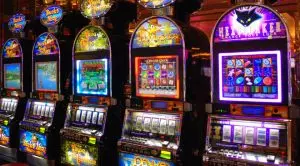 As Casino Guardian reported at the beginning of August, gambling still has a heavy impact on people in the Pacific region, with levels of gambling-related harm remaining almost unchanged, in spite of the fact that overall gambling participation rates fall.
As Casino Guardian reported at the beginning of August, gambling still has a heavy impact on people in the Pacific region, with levels of gambling-related harm remaining almost unchanged, in spite of the fact that overall gambling participation rates fall.
The findings emerged as a result of the latest national gambling study held by the Auckland University of Technology and funded by the Ministry of health. At present times, the figures which were revealed at the time when the research results were announced remain pretty stable, with Māori and Pacific’s peoples being exposed at higher risk of becoming gambling addicts than other ethnic groups.
At the time when the National Gambling Study (NGS) report was released, Professor Max Abbott, who heads the Gambling and Addictions Research Centre and led the study, said that more work needs to be done in order to the high rates of relapse to be addressed. He further added that gambling-related harm is significantly larger than the harm associated with other addictions, and is also closely related to depression and alcohol dependence.
According to researchers, the harm inflicted on the Pacific and Māori populations is boosted a lot. An interesting trend is the fact that the number of pokie machines has declined since the introduction of the Gambling Act in 2003, but pokies still remain heavily concentrated in poorer communities. Experts also say that local pubs and clubs have failed to show a duty of care as they are required to do under the current legislation.
Number of Pokies in Māori Communities Remain “Disproportionate”
 Earlier this year, some anti-pokie campaigners have called the authorities to take urgent action in order to tackle gambling-related harm in New Zealand.
Earlier this year, some anti-pokie campaigners have called the authorities to take urgent action in order to tackle gambling-related harm in New Zealand.
Lance O’Sullivan, a Northland doctor and political aspirant, have earlier called for a nation-wide ban on the machines, after witnessing the negative impact they had on the Northland community of Kaitaia. At the time, O’Sullivan and his fellow researchers warned that the harm inflicted by pokie machines in local communities came as a reflection of poverty statistics, mental health issues and housing inequalities.
In addition, researchers revealed that the number of poker machines in Māori communities is largely disproportionate, with one in five New Zealanders admitting they had been dragged to gambling addiction thanks to the influence that family members had on them.
According to the 2015 Ministry of Health Statistics, non-casino pokie machines are the preferred form of gambling for people who suffer a gambling addiction. Lance Norman, the Chief Executive Officer of Hāpai te Hauora, also backed the claims made by Dr. O’Sullivan and said that the large number of pokies in poorer communities made Māori people and people in the Pacific region unfairly targeted by the dangerous machines.
According to some data released by the Problem Gambling Foundation of New Zealand in 2017, there was one poker machine per 465 people in the wealthier communities, while in poorer areas, there was one pokie for every 75 people.
- Author


